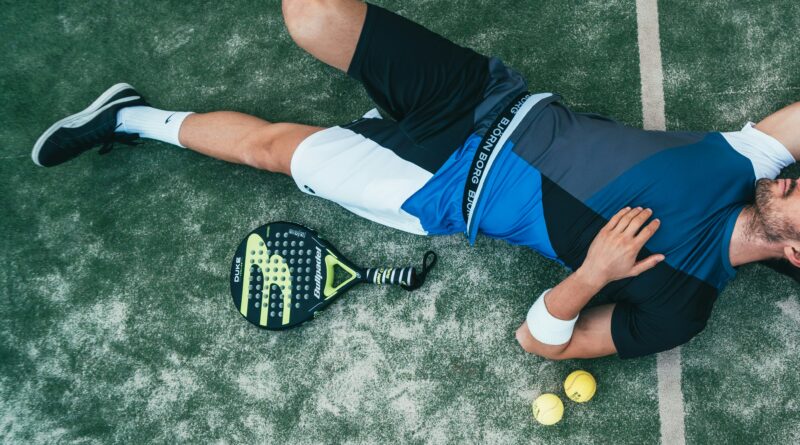Importance of sleep in sports performance
Athletes, in general, position sleep as a vital factor in achieving better sports performance due to its impact on training activities, nutritional needs, and recovery methods. Athletes must understand that lack of sleep creates major problems for their performance while also reducing their ability to heal and lowering their risk of injuries. Recovery entails rest, but sleep should be treated as a performance metric.
In this article, we explore ways in which sleep as a recovery tool impacts the performance level of athletes.
Sleep’s Impact on Performance Level
Repairing and Growing Muscles
Sleeping represents an essential recovery factor to promote muscle tissue repair and recovery. The body expends considerable energy in enduring and strengthening activities, so repairing and recovering muscle tissues becomes critical. Aiding these processes, the body has to release growth hormones. Without sleep, there is no adequate hormone production.
This culminates in muscle fatigue, decreased endurance, and increased injury probability. Restricting oneself to endurance and strength workouts severely limits growth’s healing process. Working-age people, especially athletes, are prone to this hungry, constant race to outpace and surpass the competitive curve.
Restoring Energy
While depleting the energy that the body has, sleep is reserved. Endurance athletes highly rely on glycogen, as it is used intensively by long-distance runners, swimmers, and cyclists. Endurance athletes need significant amounts of glycogen, which gets vehemently depleted. Stored during sleep, glycogen failure leads to exhaustion during strenuous ongoing exercises if sleep is insufficient.
Mental Performance and Sleep
Improved Reaction Speed and Better Decision-Making
The maintenance of cognitive and physical performance relies on sufficient sleep for human beings. Procedures involving memory and learning new abilities rely on adequate sleep duration.
Sleep in sports aids in memory functions, which enhance concentration and result in quicker reflexes, better coordination, overall judgment, and coping with complex situations. Sleep deprivation, on the other hand, results in a poor mental state and even poorer attention, sluggish reactions, unambitious decisions, emotional imbalance, and inability to manage emotions.
Mental Sharpness and Concentration
Having enough rest is important to ensure you remain sharp and on point. Sleep, for one, enables rest and replenishment within the tissues and is exceptionally important for the removal of toxins from the brain.
As an explanation, having enough sleep enables utmost physical performance during training/sessions and competitions, thereby training. The absence of sleep, particularly chronic sleeplessness, spells doom due to a substantially shorter attention span and focus, resulting in erroneous performance.
Sleep and Injury Prevention
Muscle Fatigue and Injury Risk
When it comes to muscular recovery and workout-based activities, the lack of sufficient sleep directly interferes with muscle recovery and physical exertion. Sufficient sleep proves to have a direct correlation to an athlete’s physical posture and coordination. Inadequate sleep means an amazingly heightened chance of incurring overuse injuries like strained muscles and sprained ligaments.
Sleep deprivation affects poor posture control, non-existing coordination, and technique increase over the form breakdown stages, resulting in enhanced injury.
Reduced Immune Function
Evidently, the sleep cycle holds equal significance to nutrition. The body makes itself vulnerable to illness when athletes don’t receive sufficient rest. The method wastes resources both during competition and training sessions. The production of best-defender proteins in the body increases when people sleep since they serve as defenders against infection. Sleep provides the body with superior resistance to viruses and bacteria, so the immune system becomes stronger.
The Connection of Sleep with Hormones
Growth Hormone
As has earlier been explained, growth hormone is absolutely vital for the rebuilding and repairing of the muscles after an intense workout. It has been noted earlier that growth hormone is released principally during sleep. Thus, if someone is deprived of sleep, their growth hormone levels will be low. Insufficient sleep is bound to reduce growth hormone, adversely impacting muscle recovery and diminishing stamina.
Sleep Enhancements in Relation to Performance
Endurance Over Long Periods
Usually, anaerobic performance, especially in athletes, tends to reduce after prolonged periods of sleep deprivation. When ignored, chronic lack of sleep leads to severe exhaustion and burnout, putting the body into a caught state of never fully recovering. Sleep optimally replenishes the body’s energy, which, alongside endurance, lifts the athlete’s performance capability over extended periods.
Reduced Risk of Overtraining
A combination of insufficient rest leads to lethargy, injury, and subpar performance. Overtraining as a result of a lack of sleep along with muscle rest should be noted here, as restoring time for the body to fix itself is crucial. Not paying attention to sleep brings grave effects for an undertrained athlete, such as severe exhaustion and injury resulting from sustained reduced performance.
Proper Sleep Management
For sleepless people, trainers and athletes must monitor that athletes get sleep to reap the full benefits. Effective practice will make things better for sleep. Here are a few suggestions listed that can enable better slumber:
- Establish a Sleep Routine
Going to bed & waking at a particular hour leads to enhanced rest and enables the proper function of the body’s clock, as it is during the weekend as well. - Build a Sleep-Friendly Environment
Best rest is promoted in cool, dark, and silent rooms. Use of blackout curtains and white noise machines to block out distractions. - Avoid Stimulants Too Close To Sleep
Caffeine-rich meals and the like tend to interfere with falling asleep. These should be avoided for a few hours before bed. - Practice Relaxation Techniques
Popular methods to prepare the body include meditation and breathing, light stretching, or relaxing in other ways right before sleep. - Limit Screen Time
Restriction of the use of televisions, computers, and phones should take place at least thirty minutes before bed, allowing the body to produce its sleep hormone, melatonin, without the risk of hindrance from screen blue light.
Conclusion
Every expert knows how critical an athlete’s specific sleep schedule is, and no one in their right mind overlooks sleep’s role in performance. Sleep enables recovery, reduces the risk of injuries, increases cognitive clarity, and aids in fulfilling pre-competition preparation tasks.
Not all athletes pay attention to ‘sports sleep,’ but those who do seem to experience a drastic improvement in mental ability and physical condition, which enhances career longevity. One needs to understand that “joyful” sleep improves concentration and achievement maximally.




